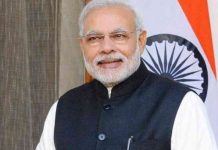 A SCRAP DEALER in the west Uttar Pradesh town of Saharanpur, 70-year-old Atta-urrehman Kureshi hardly seems a candidate to be tempted by terrorist ambitions. Kureshi set up Wahadat-e-Islami (Unity of Islam) in 1994 to propagate Islam.
A SCRAP DEALER in the west Uttar Pradesh town of Saharanpur, 70-year-old Atta-urrehman Kureshi hardly seems a candidate to be tempted by terrorist ambitions. Kureshi set up Wahadat-e-Islami (Unity of Islam) in 1994 to propagate Islam.
In July-end this year, an outraged Kureshi appeared before the SIMI tribunal in New Delhi with a plea with which the judge was by now quite familiar: to strike off his organisation’s name from the background note, which had claimed: “SIMI is reported to be having many cover/front organisations. At the All-India level these [include] …Wahadat-e-Islami.”
Kureshi told the judge he had long passed the upper age limit of 30 years for SIMI membership when it was launched in 1977. He demanded to be told the basis on which his outfit was linked with it. (The paragraph names 60 organisations across India, including one Association for Rural Development and Research and Minority Rights Watch in Kerala.) As ever, the Central Government’s lawyers hadn’t a clue who Kureshi was and why their backgrounder named his organisation. But surprisingly, in his cross-examination, the first question the Centre’s lawyer asked him was, “Are you Yasin Patel’s father-inlaw?” Perplexed, Kureshi said he wasn’t, but volunteered that Patel was his friend’s son-in-law.
Patel, a former SIMI officebearer, is the legal representative of ex-SIMI president, Shahid Badr Falahi, who contested the ban at the tribunal. Sentenced to seven years in jail and out on bail, Patel was attending the tribunal hearings in Delhi. Moments before they stepped inside the courtroom, Patel introduced Kureshi to the SIMI lawyers as “my fatherin- law’s friend”. Standing nearby, the government lawyer perhaps misheard and, in the absence of any other evidence, decided to use it to connect him with SIMI.
A year ago, the Wahadat-e-Islami held a meet on the ‘Role of Muslims in Indian Politics’ at Lucknow. Two years ago, it had organised ‘Islam and World Peace — Programme against International Terrorism’. Yet he is the main accused in the infamous Surat Case, a case that reflects the never-ending persecution of these Muslims and that is profiled in another column. •












